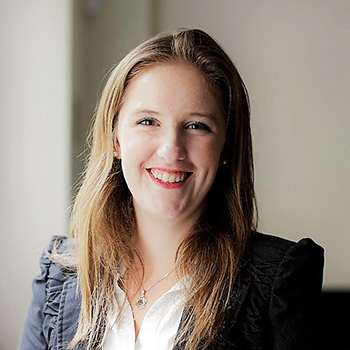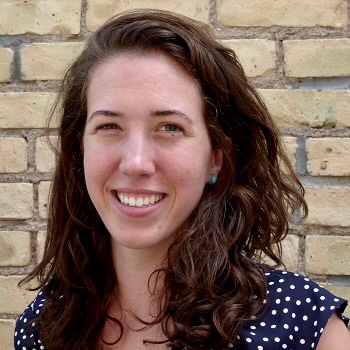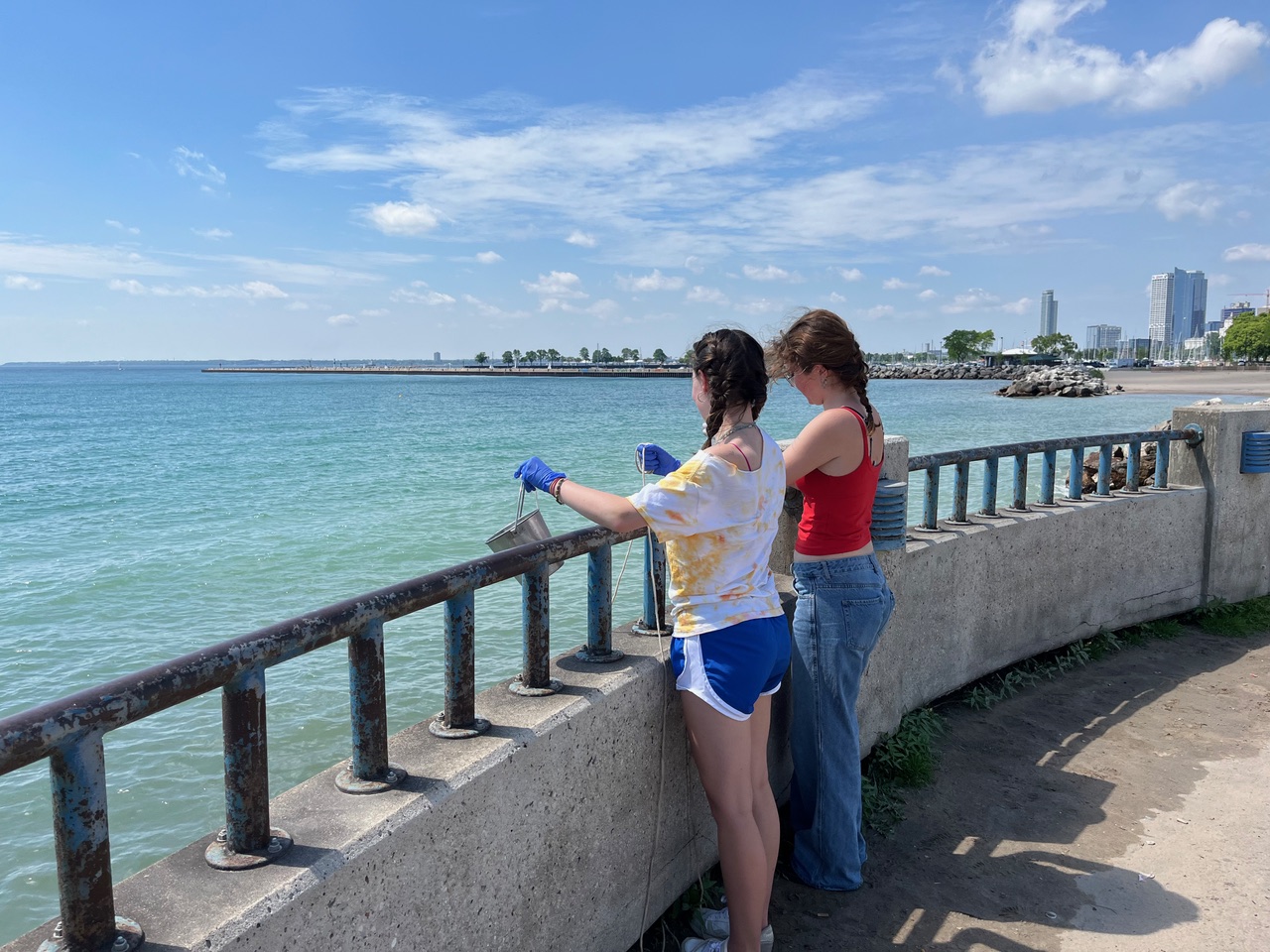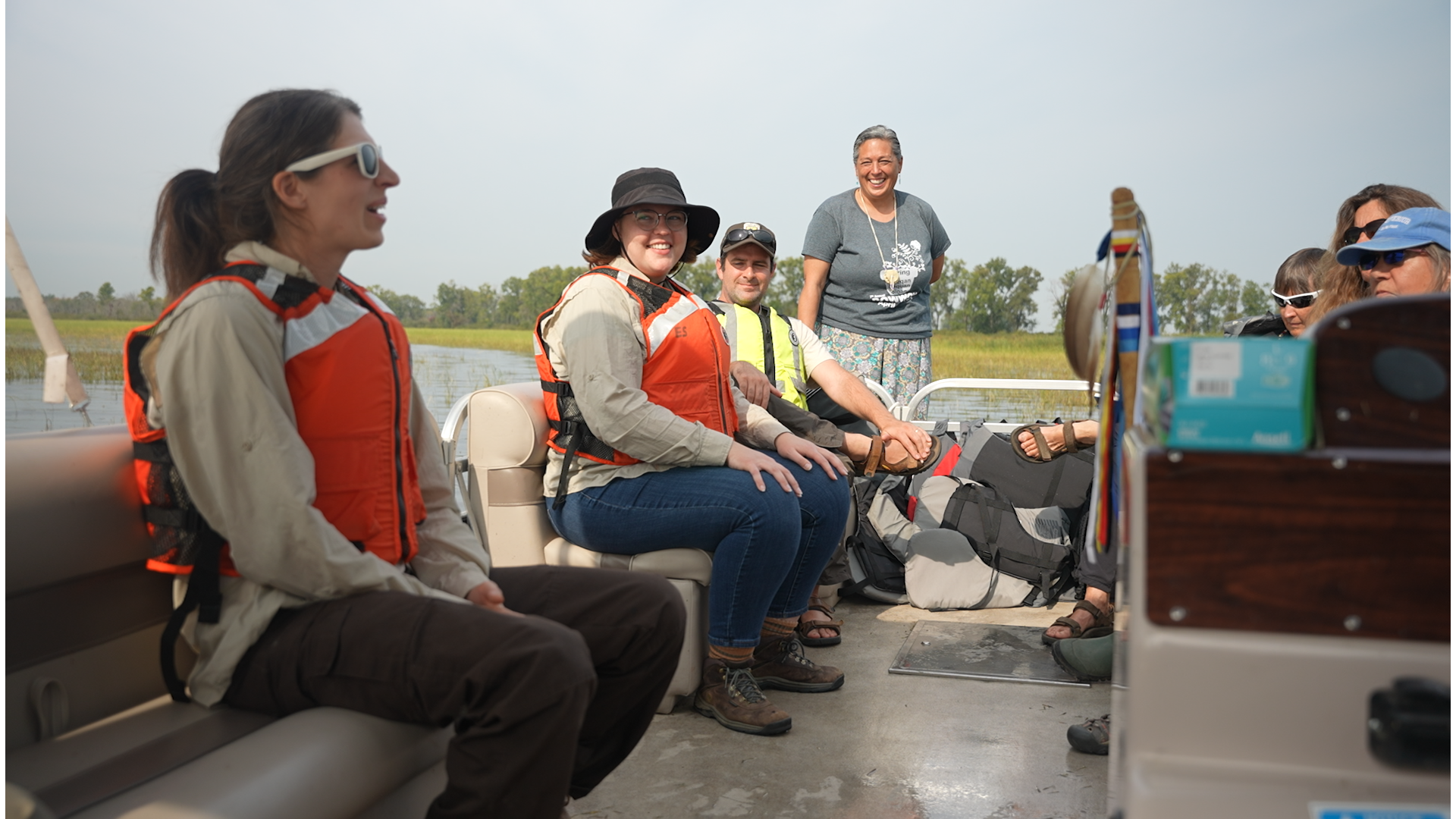The National Oceanic and Atmospheric Administration (NOAA) and Sea Grant are pleased to announce the finalists for the 2021 class of the Sea Grant John A. Knauss Marine Policy Fellowship program. Two of those finalists, Stephanie Houser and Rachel Johnson, applied to the program through Wisconsin Sea Grant; learn more about each of them at the end of this story.
The one-year fellowship places early career professionals in federal government offices in Washington, D.C. The 74 finalists in the 2021 class represent 27 of the 34 Sea Grant programs, including Wisconsin. Since 1979, over 1,400 fellows have completed the program, becoming leaders in science, policy and public administration roles.
Knauss finalists are chosen through a competitive process that includes several rounds of review at both the state Sea Grant program and national levels. Students who are enrolled in or have recently completed Master’s, Juris Doctor (J.D.), and Doctor of Philosophy (Ph.D.) programs with a focus and/or interest in marine and coastal science, policy or management apply to one of the 34 Sea Grant programs. If applicants are successful at the state program level, their applications are then reviewed by a national panel of experts.
The 2021 finalists are a class with diverse experiences that go beyond completing rigorous academic programs. Many have held campus leadership positions and served their communities as volunteers and mentors. Others have worked with a variety of federal agencies, such as the National Park Service, U.S. Fish and Wildlife Service and Centers for Disease Control and Prevention.
These finalists have received impressive awards and scholarships (including ones from the National Science Foundation, National Geographic and Fulbright Program), speak multiple languages and have traveled or worked in 47 countries outside of the U.S. The class includes NOAA scholars, fisheries observers, former delegates for the U.N. Climate Change Conference of Parties, marine animal rescuers, outdoor adventurers, science communicators and an Olympic athlete.
“We are excited to welcome the 2021 class of Knauss fellows and look forward to the skill and perspective that they will provide towards addressing critical marine policy and science challenges,” said Jonathan Pennock, director of the National Sea Grant College Program. “As the government and the sciences adapt to new norms for working driven by the COVID-19 pandemic, the Knauss fellowship will create novel opportunities for the fellows to redefine how government and science interact and operate for the benefit of society.”
This fall, the 2020 finalists will participate in a virtual placement week to get to know each other and interview with potential host offices. Following placement, they will begin their fellowships in February 2021.
Executive appointments for the 2020 Knauss fellows included placements throughout the National Oceanic and Atmospheric Administration as well as with the Department of State, Environmental Protection Agency, Federal Emergency Management Agency, U.S. Navy and other agencies. Legislative placements included the Senate Committee on Environment and Public Works (Minority), the House Committee on Natural Resources (Majority), Senate Committee on Commerce, Science, and Transportation (Majority and Minority), and several placements in both majority and minority personal offices (House and Senate).
The 2021 Knauss finalists will become the 42nd class of the fellowship and will join a group of over 1,400 professionals who have received hands-on experiences transferring science to policy and management through one-year appointments with federal government offices in Washington, D.C. For many fellows, this opportunity helps launch their careers at NOAA and other federal agencies, like alumni Emily Larkin and Stuart Levenbach.
Want to learn more about the Knauss fellowship? The Knauss blog shares stories from the 2020 Knauss class on fellowship experiences and their journeys to D.C.
Placement of 2021 Knauss finalists as fellows is contingent on adequate funding in Fiscal Year 2021.
Wisconsin Sea Grant 2021 Knauss finalists
Stephanie Houser

Stephanie Houser (submitted photo)
Houser completed her bachelor’s degrees at Bucknell University in Pennsylvania, earning both a bachelor’s of science in civil engineering and a bachelor of arts in international relations. Next, she earned a master’s in environmental engineering at the University of Illinois at Urbana-Champaign. Currently, she’s nearing completion of a doctorate in civil and environmental engineering at the University of Iowa.
Houser, who is from Orchard Park, New York, said she first became interested in the intersection of public policy and engineering while an undergraduate at Bucknell. “This sparked an interest in the economic and political challenges that we face in solving environmental challenges. It also points to the need for strong policy to use science to save our environment and promote the public’s health,” she said.
While at the University of Iowa, she learned more about policy issues through her coursework. Now, with the expected completion of her doctorate a few months away, she is ready to begin her next chapter. “All of my experiences led to the decision that I wanted a career in the [policy] field and, as a result, I searched for opportunities that allowed me to gain firsthand experience in the policy sector,” she said. “The Knauss Fellowship is a perfect fit to bring together my policy interests, my science and engineering background, and my career goals.”
Rachel Johnson

Rachel Johnson (submitted photo)
Johnson earned her bachelor’s degree at Carleton College in Minnesota, majoring in geology and minoring in Spanish. She then continued her education at the University of Wisconsin-Madison, where she completed a master’s in water resources management earlier this year and will soon complete a second master’s in biological systems engineering.
She is also a Wisconsin Distinguished Graduate Fellow in Water Resources and has served on the executive committee of Water@UW-Madison, a group that connects water-related activity and research across campus, since 2017.
Originally from Woodbury, Minnesota, Johnson said that “research on land management and water quality for both of my master’s degrees has shown me how we live today with decisions made decades ago, and how policies–or the lack thereof–have long-lasting and far-reaching influences on our aquatic ecosystems.”
Looking ahead to her Knauss experience, “I’m excited to gain experience at the federal level in translating science into policy decisions,” Johnson said.





